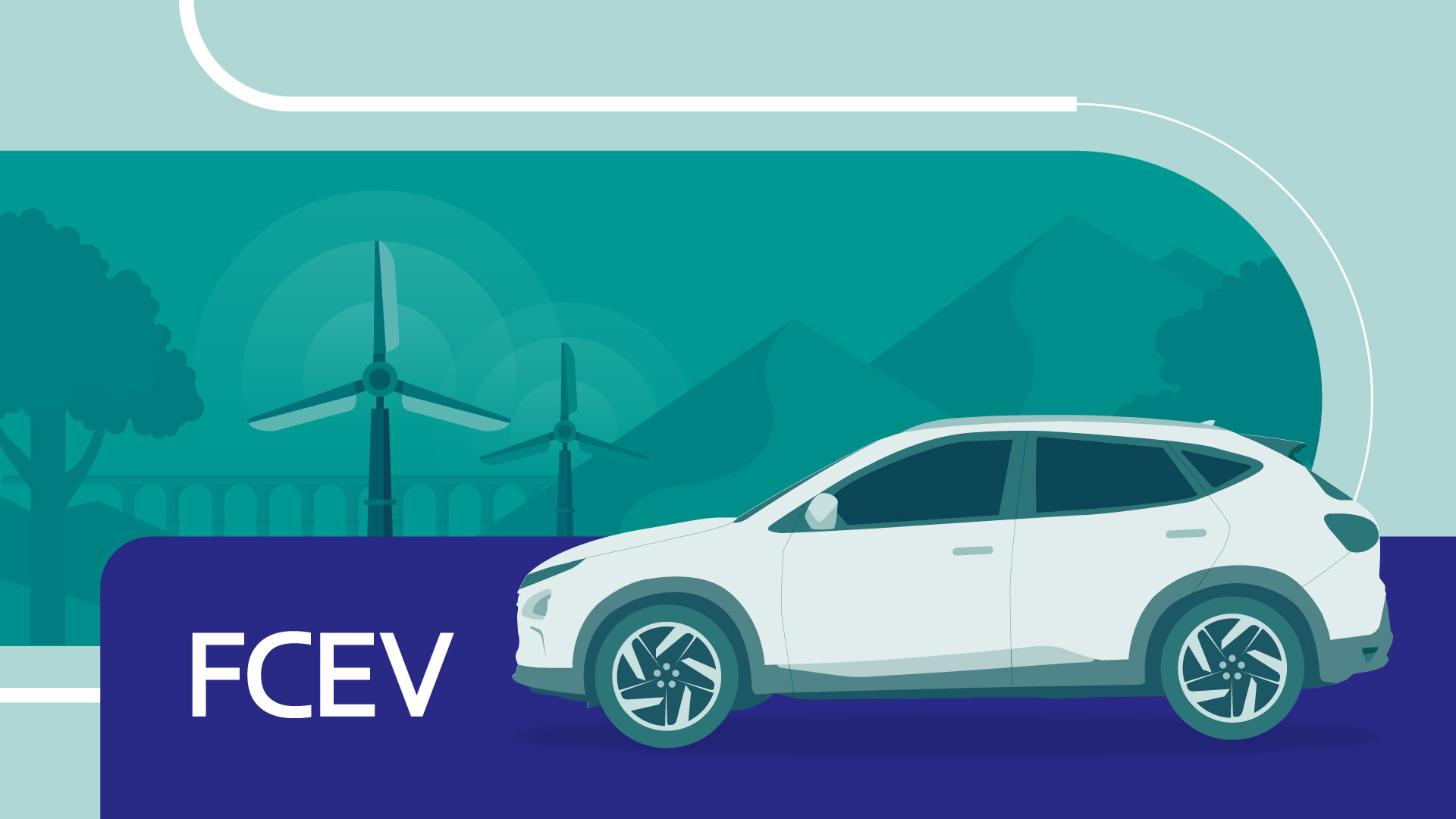
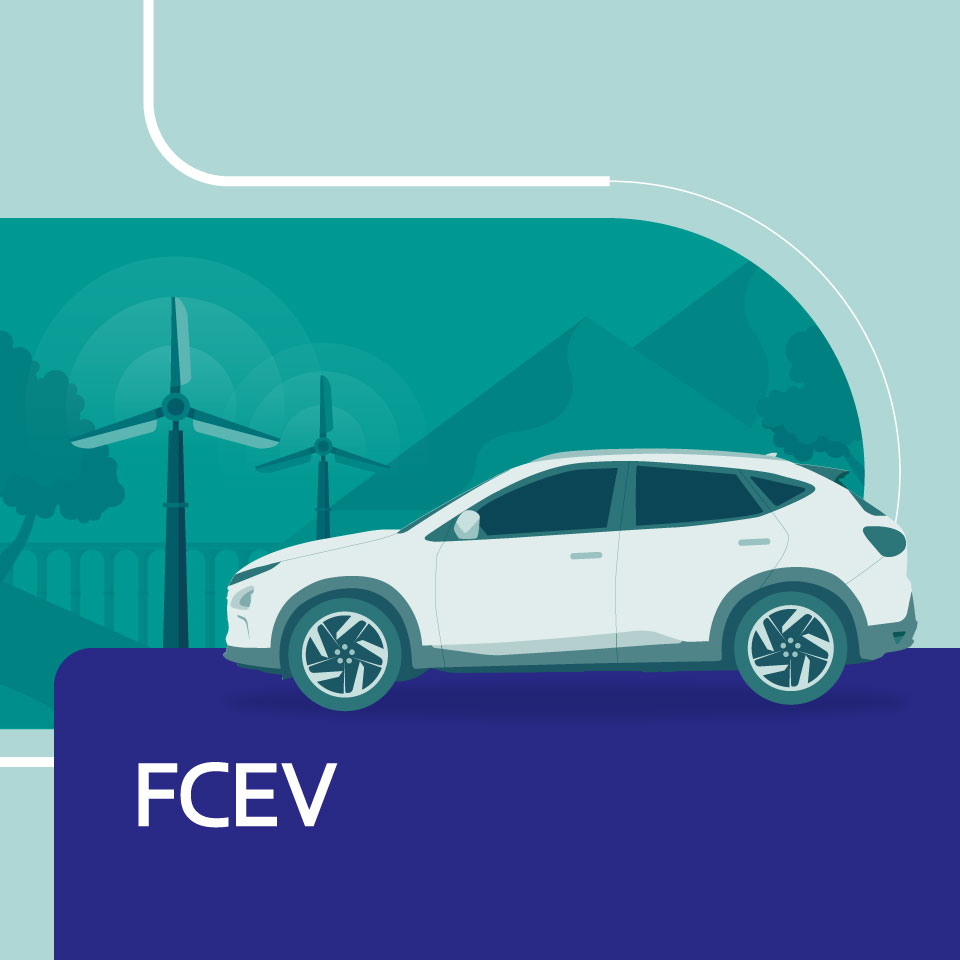


FCEV is a future green vehicle. It produces no harmful tailpipe emissions, and even purifies the air outside. Here is some information about how exactly green they are, and how we are going to use these fuel cell systems.
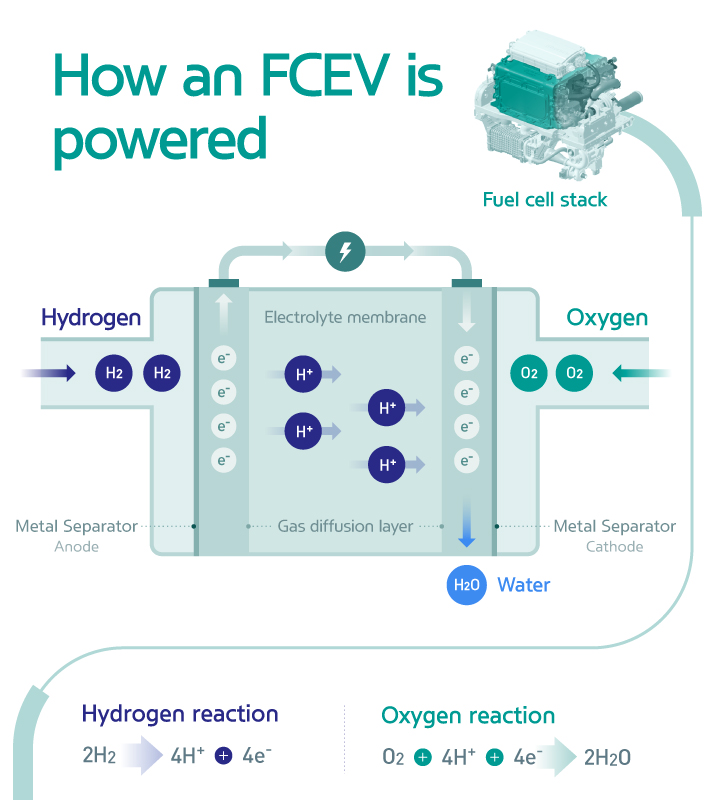
The most important part of being a green car is that it should not emit toxic pollutants. FCEVs produce no harmful tailpipe emissions, unlike internal combustion engines burn gasoline or diesel fuel and produce carbon monoxide (CO), nitrogen oxides (NOx), hydrocarbons (HC), carbon dioxide (CO₂), and sulfur oxides (SOx). This explains why a number of governments around the world try to regulate these engines.
FCEVs work differently from how conventional ICEs do. They use a different type of fuel and also generate power differently. Though they might seem similar with EVs at first, FCEVs have their own way to run. Hydrogen from the tanks and oxygen from outside air meet in the FCEV’s fuel cells to produce electricity and distilled water. The electricity is used as a power source, and the water is removed as exhaust. EVs and FCEVs are environmentally friendly vehicles with no exhaust emission, but FCEVs take it a step further by scrubbing the air wherever they go, and are considered the most environmentally friendly vehicles.
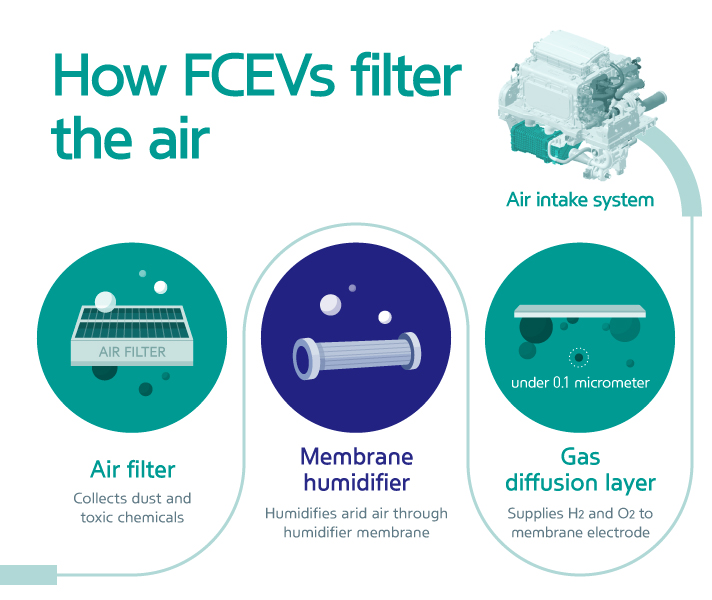
The oxygen necessary to react with hydrogen is drawn from the atmosphere. Such air drawn into the FCEV passes through a 3-stage air purification system consisting of an air filter, membrane humidifier, and a gas diffusion layer, which cleans it of particulates and other unwanted matter, leaving the air cleaner. In a way, it has an atmospheric ‘scrubbing’ effect and also maintains the quality of fuel cells by keeping them clean.
FCEVs emit cleaner air than they sucked in before, so, not only they protect the fuel cells but also purify the air. There is obviously a reason why they are called 'Running Purifiers'.
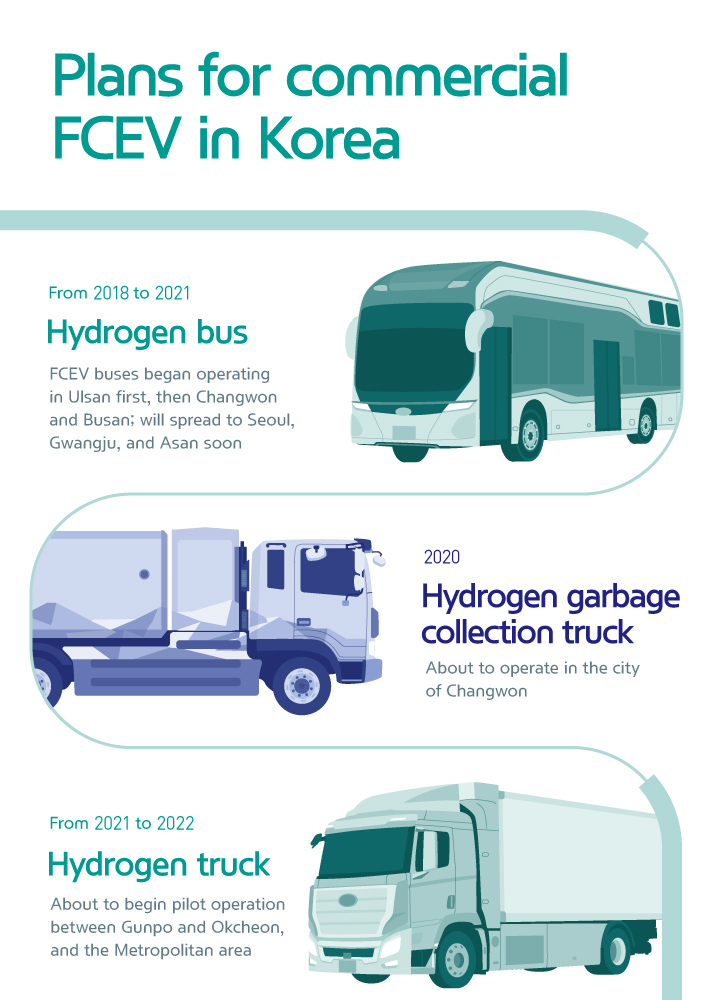
The environmentally-friendly fuel cell system of an FCEV will likely to be used among commercial vehicles as well. Commercial vehicles, such as trucks or buses, have much longer ranges than private vehicles; this means they emit much more pollutants. According to the report Ministry of Environment released back in 2016, large-sized trucks emit 11,223 tons of ultra-fine dust every year, which takes up approximately 24.2 percent of all pollutants emitted by all types of vehicles. Considering the fact that large-sized trucks are as many as merely one percent of all registered vehicles, the pollutants these trucks emit are much more serious than regular cars. This is why there are reports published, anticipating the air quality will be dramatically improved if these trucks have fuel cell systems. No wonder why people want commercial vehicles switched to FCEVs soon enough.
Hyundai Motor Company, collaborating with provincial governments, has begun pilot operation of hydrogen buses in Ulsan, Changwon, and Busan, and they will expand the business in Seosan and Asan. The company also is trying to implement fuel cell-powered commercial vehicles, such as large trucks or garbage collection trucks.
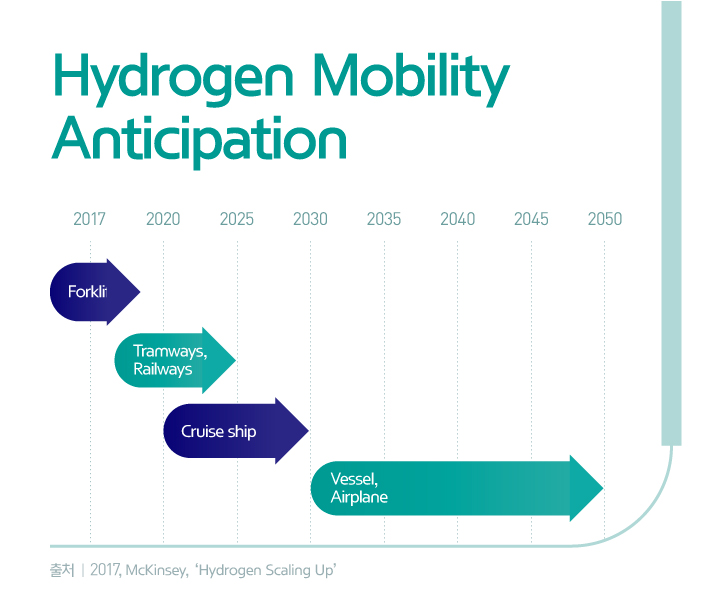
According to the Mckinsey report published back in 2017, the fuel cell system is going to spread among other mobility sectors - hydrogen tramways and railways by 2025, cruise ships by 2030, and vessels and airplanes by 2050.
South Korea is also working on developing hydrogen fuel cells. HMG will collaborate with Hyundai E&C to develop a hydrogen forklift by the end of this year, and a hydrogen excavator by 2021 to make them available in the market. Hyundai Rotem, on the other hand, is working with Hyundai Motor Company to build a railway system powered by hydrogen fuel cells.
The reason that people see fuel cell promising is not just because it's highly cost-efficient and safe, but most of all, it's green enough. The fuel cell system indeed has a bright future, considering everyone is focusing on sustainable growth.